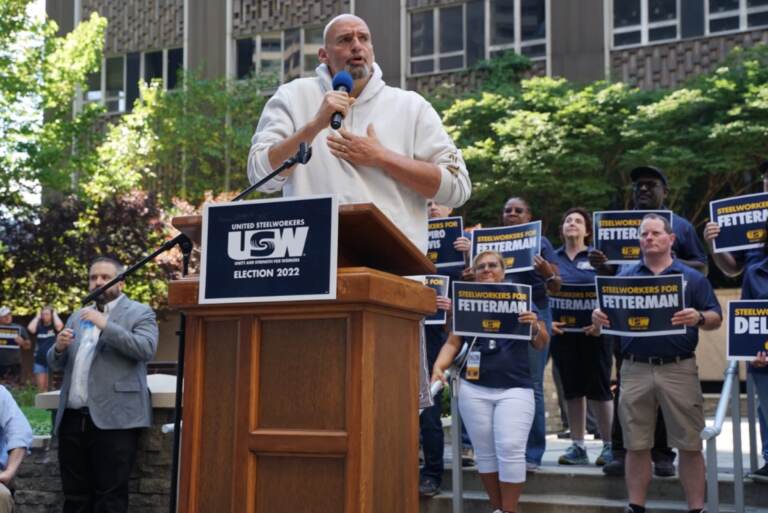Is This Any Way to Run a City’s Schools?
Leaked CTU Proposals Won’t Do Anything to Improve Schools’ Poor Performance

Just a few weeks before 2022’s mid-term general elections, a reporter asked House Speaker Nancy Pelosi (Calif.) if she believed her Democrat Party would keep its majority in her chamber after the ballots were counted.
“Yes indeed,” she replied. “I was just in 12 cities in 12 days. We’re ready. And understand this. Because of the leadership of [Democrat campaign chief Sean Patrick Maloney], we’re ready.”
As the dust continues to settle on a mid-term election cycle that befuddled pundits of all partisan and ideological stripes, the outgoing speaker finds herself without her steadfast ally (Mr. Maloney, a New York congressman, lost his own reelection) and without her majority.
Big Labor-backed Democrats, who tried repeatedly in 2021 and 2022 to effectively ban state Right to Work laws across the country via the so-called “PRO” Act, lost control of the House of Representatives.
And while union bosses came out in full force to elect Senate candidates who would rubber-stamp their coercive agenda, they only managed to flip one currently GOP seat, electing radical Pennsylvania Democrat John Fetterman.
Even this pick-up for Big Labor did not result in a net Senate gain for supporters of compulsory unionism as a consequence of avowed Right to Work supporter Eric Schmitt’s successful run for Missouri’s open Senate seat.
Mr. Schmitt (R), who pledged complete opposition to monopolistic unionism after being lobbied by National Right to Work Committee supporters in his state, will replace retiring Republican Sen. Roy Blunt, a longtime Big Labor appeaser who openly acknowledged his opposition to Right to Work protections.
“Few political prognosticators expected this year’s midterms to play out the way they did,” observed Committee President Mark Mix.
“Nancy Pelosi’s confidence was matched by that of her opponents, who purported to be equally certain of an impending ‘red wave.’ Both sides cited polls, historical trends, political issues receiving heavy play in the media, and pure hunches to prove they were cruising toward victory.
“Through all the hubbub and speculation, Committee members and leaders did what we have done in every election for decades: let concerned Americans know which of their candidates support Right to Work, and which support forced unionism.
“Whether an election brings a wave or a ripple, whether the polls are spot-on or wildly inaccurate, the fact remains that kowtowing to union bosses continues to be bad politics.
“This year was no exception.”
Republicans began 2022 with 212 seats in the House, and needed to flip six seats to gain control of the chamber.
It is now currently estimated they picked up 10, just four more than they needed to get a majority.
And six of these victories were supplied by Republicans who pledged 100% support for Right to Work.
Right to Work supporters Eli Crane (Ariz.), Kevin Kiley (Calif.), Aaron Bean (Fla.), Anna Paulina Luna (Fla.), Zach Nunn (Iowa), and Jen Kiggans (Va.) won seats previously held by union-label Democrats.
Mr. Nunn, Mr. Crane, and Ms. Kiggans respectively took out Big Labor incumbents Cindy Axne, Tom O’Halleran, and Elaine Luria — all of whom had voted to end Right to Work laws nationwide via the PRO Act.
“Given that large majorities of Americans support the Right to Work principle that no one should be forced to pay union dues as a condition of employment, the stances these Big Labor-backed legislators took are deeply unpopular,” said Mr. Mix.
“The problem is, voters often aren’t aware that their politicians have caved in to special interests, and union bosses and their political operatives spend billions of dollars in every campaign cycle to distract public attention away from the key issue of employees’ individual freedom.”
Mr. Mix explained: “Through forced dues-funded phone banks, get-out-the-vote drives, paid ‘volunteer’ foot soldiers, and propaganda mailings, union operatives aim to help otherwise vulnerable Big Labor candidates win, often easily.
“This overwhelming flood of resources protected many union-label candidates in 2022.
“And Big Labor electioneering would have enabled its puppet politicians to keep control of the House if voters across America had remained ignorant of what their prospective representatives had done to secure such deep-pocketed allies.
“But National Right to Work’s federal Survey program ensured that millions of freedom-loving citizens knew which of their candidates planned to betray workers in exchange for union-boss campaign help, and which had pledged to stand with them in support of voluntary, not compulsory, unionization.”
To mobilize Right to Work supporters, the Committee distributed over 5.8 million federal Survey “information packets” through the U.S. Postal Service.
Survey 2022 also had a massive internet component, including approximately 2.3 million emails transmitted in the run-up to the elections. All this, plus targeted multi-media advertising.
The packets, emails and ads let Right to Work supporters know where their candidates stood on compulsory unionism.
In Iowa’s Third Congressional District, where union-backed incumbent Cindy Axne lost by just over 2,100 votes, the Committee mailed nearly 23,000 Right to Work supporters, reminding them that Ms. Axne had voted to end Right to Work protections for all Iowa employees.
Simultaneously, the Survey packets informed Iowans that Ms. Axne’s opponent, Zach Nunn, had pledged complete support for Right to Work.
Ms. Axne had plenty of time to renounce her support for the PRO Act, which on top of imposing compulsory unionism nationwide would grant dozens of other wishes long harbored by power-hungry union bosses. But the congresswoman refused to heed the calls of her constituents.
In Virginia’s Second Congressional District, over 80,000 pieces of Survey mail informed citizens about Elaine Luria’s PRO Act vote to repeal the Commonwealth’s Right to Work law. Her pro-Right to Work opponent, Jen Kiggans, won by just over 10,000 votes.
The White House managed to avoid disaster as its party retained control of the Senate and did not lose vast numbers of House seats.
For this, President Biden will surely be forever grateful to the union hierarchy and its forced dues-fueled political machine.
However, without control of the House, it is now exceedingly unlikely that Mr. Biden will be able to keep his 2020 campaign promise that, under his watch, there would be “no Right to Work allowed anywhere in the country.”
Furthermore, he will not be able to use the PRO Act to bend federal labor law further in favor of union bosses by making it even harder for workers to remove an unwanted union and making millions of additional workers vulnerable to compulsory unionization.
“The failure of politicians in key races to win reelection after supporting union radicalism should serve as a warning to those seeking to curry favor with union bosses,” said Mr. Mix.
“Refusing to stand up for individual workers in support of voluntary unionism brings a heavy price at the ballot box.”



This article was originally published in our monthly newsletter. Go here to access previous newsletter posts.
To support our cause and help end forced unionism, go here to donate.

Leaked CTU Proposals Won’t Do Anything to Improve Schools’ Poor Performance

Wherever Big Labor wields the power to collect forced union dues, union bosses funnel a large share of the confiscated money into efforts to elect and reelect business-bashing politicians. Employment growth tends to lag as a consequence.

Members Insist They Keep Pro-Right to Work Campaign Promises